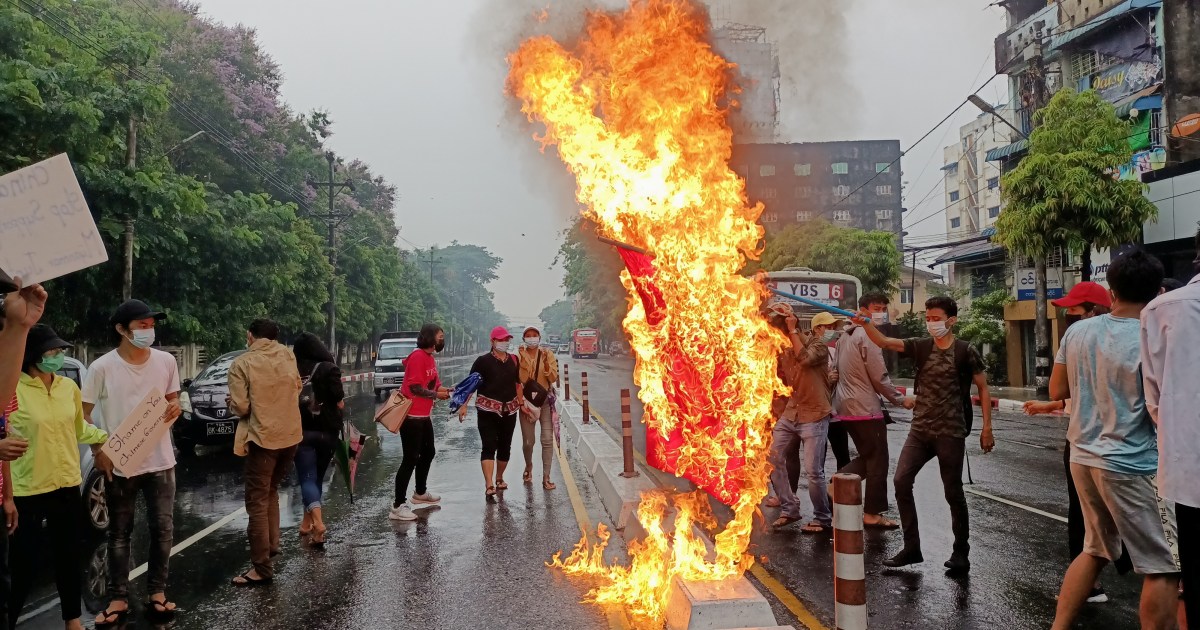Russia announced today, Tuesday, its opposition to imposing sanctions on the military council in Myanmar that overthrew the elected government more than two months ago, while the United Nations expected more casualties than documented by human rights reports in this troubled Asian country.
"The path towards threats and pressure, including the use of sanctions against the current Burma (Myanmar) authorities, has no future and is very dangerous," the Russian Interfax news agency quoted a foreign ministry spokesman as saying, adding that such policies would "push the Burmese towards a large-scale civil war."
Earlier this month, British Foreign Secretary Dominic Raab announced the imposition of new sanctions targeting the commercial interests of the Myanmar military that toppled the elected government in early February.
Dominic emphasized that this step was in response to the "brutal crackdown" launched by the Myanmar army against pro-democracy demonstrators.
Yesterday, the United Nations announced that the death toll at the hands of Myanmar's army has risen to 568, including 18 people over the weekend.
Stefan Dujarric, spokesperson for the UN Secretary-General, said at a press conference at the headquarters in New York that the organization's human rights office had received reliable reports of the killing of at least 568 women, children and men since the army took control of (the situation).
The spokesman added that the United Nations is concerned about the continuing violence in the country, "and we expect the number of victims to be much higher."
In early February, military leaders in Myanmar carried out a military coup, followed by the arrest of senior leaders in the country, including President Win Myint and Chancellor Aung San Sochi.
Demonstrators held protests yesterday calling for the restoration of the Sochi government, and called for greater coordination among the opposition across the country, in defiance of steps taken by the army to suppress attempts to organize the ranks of voices opposing his rule.
On the other hand, the Union of Myanmar Council - which includes MPs and opponents - announced the abolition of the 2008 constitution, and sought to enact a new constitution that includes the political and civil rights of various nationalities in the country, and saw that the abolished constitution prolongs what was described by the military rule that violates human rights.
This comes at a time when other opponents are preparing to announce a national unity government in the coming days, in response to the authorities' violent suppression of peaceful demonstrations.

